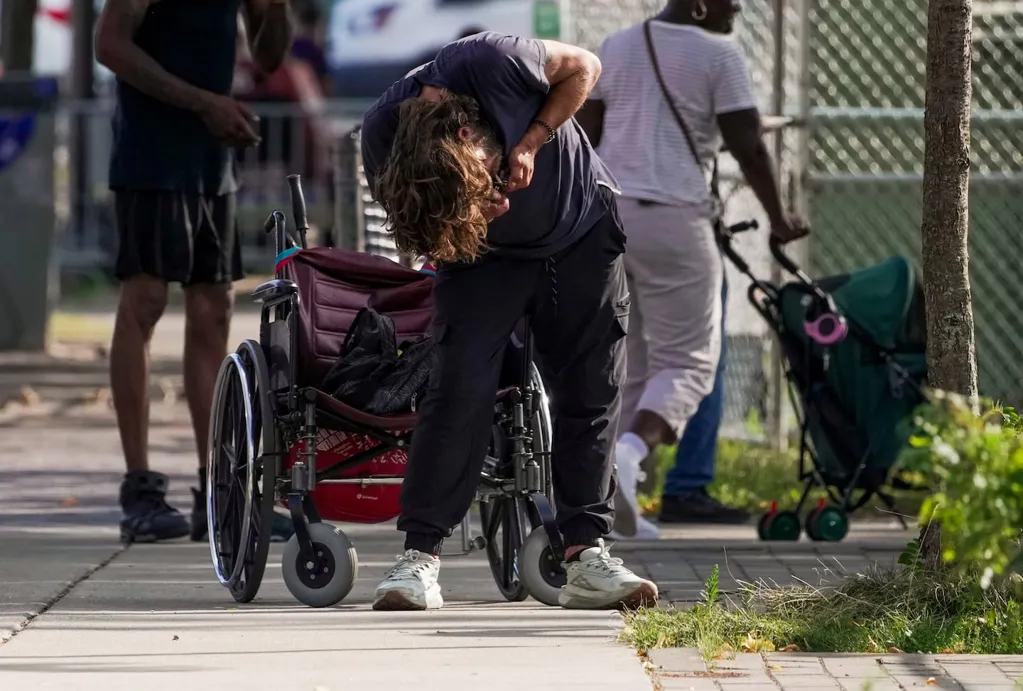Massachusetts has been there and done that. Commitment can be warranted under the right circumstances -- but it can also be badly misused.
Not so long ago the state was one of the "highest utilizers of involuntary commitment laws for substance use disorder," according to one study.
That study identified some 6,000 people a year being forced into treatment -- which brings with it its own health risks, including a "1.4-fold increase risk of non-fatal overdose" and a "potential increase in all-cause mortality" for those newly released.
And as a possible solution to the continuing problem of drug use and homelessness in the area known as Mass. and Cass, Suffolk County District Attorney Kevin Hayden, through a spokesperson, made clear that involuntary commitment was an absolute last resort.
"Section 35 was not intended as a measure to help clean up streets. It really wasn't," Jim Borghesani told WBUR.
Section 35 commitments, which can be initiated by a family member, physician, or a member of law enforcement, must be approved by a judge who determines the person is at imminent risk of harm to self or others. Commitments last for up to 90 days.
When commitments are called for, patients need to be held in appropriate settings where they have the best chance at recovery.
It hasn't helped over the years that hundreds of men subject to involuntary commitments were instead housed in correctional settings, although they had committed no crime. Massachusetts was the only state in the nation to do so. (The state prohibited the involuntary commitment of women to correctional facilities nearly a decade ago.)
The state is beginning to phase out one of those men's facilities -- but without a full plan for replacing its beds.
The state is preparing for the legislatively mandated shutdown of the Massachusetts Alcohol and Substance Abuse Center in Plymouth, a 160-bed facility run by the Department of Correction. As of this week only about 40 of those beds were occupied, a state spokesperson told the editorial board.
Its closure would leave a 152-bed facility in Western Massachusetts' Hampden County -- which some lawmakers also want to see closed -- as the sole remaining jail-based program.
But if that was combined with the planned Plymouth center shutdown, slated for the end of 2026, that'd be a lot of beds to find.
And as the state's most recent report ominously notes, "There were no newly licensed or approved facilities, or existing facilities that increased capacity," from Jan. 1 to April 30 of this year.
Nor have state officials come up with a plan for so-called dual commitments -- those who because of outstanding bail issues actually do qualify to be held in a correctional setting.
Eight facilities in the state are currently qualified to run Section 35 programs, including the DOC facility and the Hampden County unit, one run by the Department of Mental Health, and four privately run facilities contracted through the Department of Public Health. Combined they served nearly 3,000 individuals during the first nine months of fiscal 2025, according to data provided by the state.
At a hearing this week before the Legislature's Joint Committee on Mental Health, Senator Cindy Friedman, a longtime supporter of requiring facilities dealing with involuntary commitments for substance use disorder to be operated or licensed by either the Department of Mental Health or the Department of Public Health, testified that people in treatment need to be sent to a "clinical setting, not a criminal setting."
Her bill, which would do just that, encountered some headwinds at the hearing in testimony from former patients of the Stonybrook Stabilization and Treatment Center, the Hampden County facility, and from Boston City Councilor John FitzGerald, whose district includes the Mass. and Cass area and who has visited Stonybrook.
"It's an opportunity that should be modeled after, not shut down," he said of the Western Mass. unit.
"There's nothing ... that looks or makes it feel like you are sending people to jail,"
To his credit, Hampden County Sheriff Nick Cocchi moved the facility out of the Ludlow jail and into a standalone site, now approved by the state DPH and staffed by residential treatment specialists. But those staffers are hired by and remain on the sheriff’s payroll.
"I acknowledge Stonybrook for doing their best to not be a prison or seem like a prison, or look like a prison or look like a jail, but at the end of the day, it is run by a sheriff,"
This fight to save lives ought not to be about who controls the jobs. There is no particular reason why DMH or a private company with expertise in the area couldn't take over the facility, leaving Cocchi to take a bow and move on. Sheriffs are not, after all, behavioral health professionals.
When Middlesex County Sheriff Peter Koutoujian pursued the idea of a countywide crisis intervention center, he first partnered with the Massachusetts Association for Mental Health and state officials. Recently that effort was turned over to Vinfen Behavioral Health to operate. That’s the role model for Hampden County.
Involuntary commitments should be rare, but they will not disappear. Making sure patients are housed and treated in an appropriate setting is critical to their recovery. So is assuring that adequate beds will exist now and into the future for those truly in need of them.
